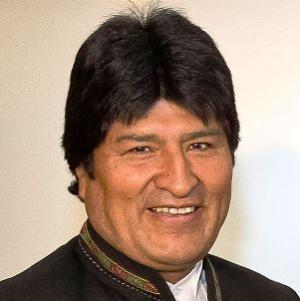Drug law enforcement operations killed people at the rate of about one a week in the US in 2015. Here are seven of the most outrageous cases.
An Oklahoma medical marijuana initiative is dead, state legislatures are gearing up with more medical marijuana bills, New York gets kosher medical marijuana, and more.
A trio of jail guards get in trouble, and a California sheriff's deputy gets popped with 247 pound of pot on a Pennsylvania highway.
Things are pretty quiet on Christmas Eve, but MPP has a Top 10 list out, a Georgia state rep wants to bring the state's pot possession law out of the dark ages, and more.
America's fourth largest city decriminalizes on Friday, Detroit tightens up on police use of paid snitches, a federal judge in Denver is hearing a marijuana banking case, and more.
Medical marijuana petitioners are busy in North Dakota, the Indiana legislature will take up asset forfeiture next session, the Spanish Supreme Court rules against a leading cannabis social club, and more.
A third marijuana legalization campaign is getting underway in Michigan, a New Mexico state representative tries again with a legalization bill, Mexican marijuana farmers are feeling the pinch from competition north of the border, and more.
Thar's gold in that there merry-ju-wanna, California finance officials say; Oregon recreational tokers start paying taxes next week, kosher medical marijuana comes to New York, the US surgeon general is planning a review of drug policies, and more.
Some former NFL players would rather treat their aches and pains with medical marijuana than opiates, an effort to put medical marijuana on the ballot in Oklahoma comes up short, Bolivia's president vows to fight for coca decriminalization, and more.
Marijuana business license applications are now available online in Oregon, Illinois medical marijuana sales go past a million dollars, Jeb Bush rolls out a drug policy platform, and more.
Marijuana business access to banking services takes a hit from a federal judge, DC marijuana social clubs take a hit from the city council, Vermont legalization prospects get downplayed, pain patients are in the crosshairs, and more.
An as yet unnamed man killed by police in Rawlins, Wyoming, on December 30, after they were called to a convenience store about a person believed to be selling drugs in the parking lot, and Burlington, Vermont, resident Kenneth Stephens, 56, shot and killed by a state trooper and a DEA agent on December 22 when he met them with a rifle as they raided his apartment, were the last two people to make the Drug War Chronicle's drug war death toll tally, bringing it to 56 for the year.
This is the fifth year the Drug War Chronicle has tallied drug war deaths. There were
54 in 2011,
63 in 2012,
41 in 2013, and
39 in 2014. That's an average of just a hair under one a week during the past five years.
The Chronicle's tally only include deaths directly related to US domestic drug law enforcement operations -- full-fledged, door-busting, pre-dawn SWAT raids, to traffic stops turned drug busts, to police buy-bust operations. Some of the deaths are by misadventure, not gunshot, including several people who died after ingesting drugs in a bid to avoid getting busted and two law enforcement officers who separately dropped dead while searching for marijuana fields.
The dead included three other police officers, two Hattiesburg, Mississippi, cops gunned down in a traffic stop turned drug search in May and a Memphis cop gunned down over a $20 pot deal in August.
But 90% of the drug war dead are civilians. While some of the deaths are accidental and some are clearly justifiable, as when people are actually shooting at police, others are more questionable. Were all those guys in vehicles who got killed because police "feared for their lives" really trying to run down and kill cops over a drug bust, or were they just trying to get away?
And some are just downright outrageous -- one might even say criminal, although local prosecutors generally seem to disagree. In only one of the cases listed below was the police officer arrested, and in that case, she walked. Here are the worst drug war killings of 2015:
1. In February, Hummelstown, Pennsylvania, Police Officer Lisa Mearkle shot and killed David Kassick, 59, after he fled a traffic stop. Kassick was a relapsed heroin user who had done time in federal prison for heroin sales, and was carrying a needle and a spoon with residue on him. Video from Mearkle's stun gun shows her repeatedly tazing Kassick as he lay on his belly in the snow and yelling at him to show his hands as they jerk around from the tazing before firing two shots into his back four seconds apart. Mearkle was arrested on murder charges in April, but acquitted of murder charges in November.

Zach Hammond. Gunned down over his passenger's pot deal.
3. Also in March, also in Florida, Putnam County sheriff's deputies shot and killed Andrew Anthony Williams, 48, as he attempted to flee in his vehicle from a "reverse sting." That's where cops pose as drug dealers, sell unwary customers small amounts of drugs, then arrest them. Deputies had successfully sold drugs to and arrested 10 people, but when they identified themselves and tried to arrest Williams, who was number 11, he declined. News 4 Jax had it this way: "…when they tried to arrest Williams, he took off in a blue SUV and, swerving to avoid deputies, ran into a tree. Williams then backed up and tried to take off again toward deputies causing four of them to open fire on Williams SUV, hitting him an unknown number of times."
Williams' death stinks for two reasons, First, reverse drug stings are a controversial tactic, sometimes arguably justifiable at the higher echelons of the drug trade, where selling sizeable quantities of drugs to a player to see where they go help crack a drug ring, but that logic isn’t at work here, where the only result is to round up some street drug buyers and drag them into the criminal justice system. Is having deputies pretend to be drug dealers to bust small-time users really the county's best use of its law enforcement resources?
And then there's the no-witness "he was going to run me over" defense used by the police to justify the killing. It happens not infrequently. Williams may have decided that getting busted on a minor dope charge was worth trying to murder a group of police officers with his vehicle. But could it have been that he was just trying to get away?
4. In April, 73-year-old Tulsa, Oklahoma, sheriff's Reserve Officer Charles Robert Bates shot and killed meth and gun trafficking suspect Eric Harris when he mistakenly opened fire with his pistol instead of his Taser. The shooting occurred in the midst of a struggle as Harris had attempted to flee on foot and there is no evidence that Bates intended to kill Harris, but the killing led to scandal over Sheriff Stanley Glanz's relationship with Bates and how the retiree volunteer managed to get in the middle of a Violent Crimes Task Force operation. Glanz was forced to resign in October and was indicted on a misdemeanor records tampering charge over his failure to release Bates' personnel records. Those records indicate that even though top sheriff's officials knew Bates wasn’t well-trained enough, they pressured others to ignore it. Bates himself was indicted for second degree manslaughter and goes on trial in April.
5. In July, Seneca, South Carolina, Police Officer Mark Tiller shot and killed 19-year-old Zachary Hammond. Hammond was behind the wheel of a car at fast food restaurant parking lot. He had driven there with a female passenger who was going to sell a small amount of marijuana to what turned out to be an undercover cop. Police said Hammond drove toward the officer, forcing him to fire, but that account was challenged by Eric Bland, an attorney representing Hammond's family. Bland said that the autopsy report showed that Hammond had been shot from behind and that the vehicle was not moving. The autopsy showed a first shot entering the teen's left rear shoulder and a second in his side five inches away that went through his heart and lungs before exiting his lower right side.
"It is clearly, clearly from the back," Bland said after viewing pictures of the bullet wounds at the coroner's office. "It is physically impossible for him to be trying to flee or run over the officer that shot him. This is a 19-year-old kid without a weapon in his car, clearly in the Hardee's parking lot on a date, and within five minutes he has two shots that appear to be in his back and his side, from an officer shooting him from the back -- and he's dead and this family needs answers."
The killing was egregious enough to spark a Justice Department investigation, which is still ongoing, but not enough to convince local prosecutors to go after Officer Tiller. In October, Solicitor Chrissy Adams declined to file criminal charges against Tiller. A federal wrongful death lawsuit filed by Hammond's family is pending.

Troy Goode. Authorities tried to blame his death on "LSD toxicity."
7. In July, a group of police officers in Southhaven, Mississippi, arrested Troy Goode, 30, after he was behaving erratically under the influence of LSD he had ingested in anticipation of a Widespread Panic concert. His wife attempted to drive him home, but at some point, he got out of the car and began creating a disturbance. Police were called, and they chased and arrested him, hogtieing him face down on a stretcher. He was charged with resisting arrest, then taken in an ambulance to a hospital, where he died two hours later. In December, the State Medical Examiner ruled that Goode had died of "LSD toxicity," but given that there are no known cases of fatal LSD overdoses, that finding is hard to credit. Goode's family isn't buying it; they instead cite an,independent autopsy report that found Goode died after being hogtied and left prone for an extended period. That stress position caused him to have trouble breathing and, as his heart attempted to compensate, it went into cardiac arrhythmia. "He was suffocating. His heart increased into what is called tachycardia," family attorney Tim Edwards said. "There is no scientific basis to attribute his death to LSD. This was lethal force, putting someone in a prolonged hogtied position," Edwards said. "This was not a situation where a 300-pound man attacked a police officer in the dark. This was a science nerd." The family has asked the Justice Department to file a civil rights investigation and says it plans to file a lawsuit over Goode's death this month.
back to top
An Oklahoma medical marijuana initiative is dead, state legislatures are gearing up with more medical marijuana bills, New York gets kosher medical marijuana, and more.
CaliforniaLast Monday, a federal judge threw out a monopoly lawsuit against Berkeley dispensaries. Plaintiff Christopher Smith had sued the city and its existing dispensaries, arguing that the city's cap of three dispensaries allowed them to operate as for-profit businesses. But US District Court Judge William Allsup dismissed the lawsuit, saying "this court will not lend aid to Smith's efforts to operate an illegal business."
Georgia
On Wednesday, a medical marijuana cultivation bill was filed. State Rep. Allen Peake (R-Macon) has filed House Bill 722 (not yet available on the legislative website), which would allow the state to issue up to six licenses for medical marijuana growers. The legislature last year passed a bill allowing for the use of high-CBD marijuana, but included no provisions for growing it in the state.
Illinois
On Monday, the state reported nearly $1.7 million in medical marijuana sales in less than two months. Sales began on November 9 and totaled nearly $1.7 million by year's end. The state said 2,815 patients had been served. The state has collected about $107,000 in taxes so far.
Indiana
On Tuesday, a CBD for kids bill was filed. Senate Agriculture Committee Chair Jean Leising (R-Oldenburg) has filed Senate Bill 72, which would grant immunity from prosecution to doctors conducting trials on the medical efficacy of cannabidiol (CBD). The bill has already been approved by an interim committee and is expected to have good prospects of passage.
Michigan
Last Friday, a bill to prevent employers from firing patients was filed. Rep. Jeff Irwin (D-Ann Arbor) and Rep. Sam Singh (D-East Lansing) have filed House Bill 5161 to protect the employment rights of medical marijuana patients. The bill would protect patients with registration cards, but they could still be fired if their marijuana use interferes with their job performance.
New York
Last Thursday, online registration for patients began. The state Health Department launched its online registration for patients to obtain non-smokable medical marijuana when it becomes available later this week. Registration information is here.
Last Friday, New York got its first kosher medical marijuana operation. Vireo Health, a provider of non-smokable medical marijuana products, has been certified kosher by the Orthodox Union. The Union said it awarded the certificate after inspecting the company's facilities to ensure that the marijuana was being grown and processed according to kosher standards. Vireo said it was the first time a medical marijuana producer had been demanded kosher.
North Dakota
Last Monday, the medical marijuana initiative was off to a fast signature gathering start. The North Dakota Committee for Medical Marijuana said that it had gathered between 700 and 800 signatures during its first three weeks of petitioning for its initiative. The group needs 13,452 valid voter signatures by July 11 to appear on the November ballot. It says its goal is to gather at least 15,000 signatures.
Oklahoma
Last Friday, the medical marijuana initiative petition drive fell short. There will be no vote on a medical marijuana initiative this year. An all-volunteer signature gathering campaign by Green the Vote only managed to obtain 70,266 signatures. They needed 123,000 valid voter signatures to qualify for the ballot.
Oregon
On December 24, a Lane County employee was fired for medical marijuan use. Medical marijuana is legal in Oregon. Heck, marijuana is legal in Oregon. But Lane County has fired a county employee suffering from cancer who uses medical marijuana because he violated the county's drug-free workplace policy. The fired worker, Eugene resident Michael Hirsch, now has the backing of the county's largest labor union. AFSCME Local 2831 said it plans to file a grievance and fight to get Hirsch's job back. "It's outrageous to me that the county did this," said union rep Jim Steiner. "We have fought the county's termination decisions before and won, but among the terminations, this one just doesn't make sense."
[For extensive information about the medical marijuana debate, presented in a neutral format, visit MedicalMarijuana.ProCon.org.]
back to top
A trio of jail guards get in trouble, and a California sheriff's deputy gets popped with 247 pound of pot on a Pennsylvania highway. Let's get to it:
In Tuscaloosa, Alabama, a Tuscaloosa County Jail guard was arrested last Monday after authorities learned about contraband in the jail. Darius Bramlett is charged with second-degree promoting prison contraband and conspiracy to distribute a controlled substance. At last report, he was still in jail on a $30,000 bond.In Polkton, North Carolina, a state prison guard was arrested last Monday after he balked at passing through an electronic security device, fought with other officers, ran out of the building to his car, and tried to flee. Officers found 1.5 ounces of marijuana when they searched the vehicle belonging to Correctional Officer Travis Terez Hubbard. They found another package containing an ounce of marijuana and 18 suboxone strips near where the car had been parked. He is charged with two counts of attempt to provide inmates with controlled substance, felony possession of marijuana and resisting an officer. At last report, he was in jail under an $80,000 bond.
In Hanover, Pennsylvania, a California sheriff's deputy was arrested last Tuesday after he was caught in a car with 247 pounds of marijuana being transported to the East Coast. Yuba County Sheriff's Deputy Christopher Heath, 37, was one of three men arrested in the bust, which also yielded $11,000 in cash and his department-issued service weapon. Heath is charged with possession of a controlled substance, possession with intent to deliver, and criminal conspiracy to deliver a controlled substance. Bail was set at $1 million, which he met.
In Rockview, Pennsylvania, a Rockview prison guard was arrested last Wednesday on charges he was smuggling drugs into the prison. Guard Rodney Norval Stahl, 32, is accused of trying to bring synthetic marijuana, oxycodone, tramadol and laprazolam into the prison in August. Stahl went down after an anonymous tip led to a "random" search where a drug dog alerted on him and the drugs were found. He faces 11 felony counts and is now out on bail.
back to top
Things are pretty quiet on Christmas Eve, but
MPP has a Top 10 list out, a Georgia state rep wants to bring the state's pot possession law out of the dark ages, and more.
Marijuana Policy
Marijuana Policy Project's 10 Marijuana Policy Victories of 2015. The list includes good stances by presidential candidates, actions in the Congress, decriminalization victories at the state and local level, and more. Check it out.
Georgia Bill to Defelonize Possession of More Than an Ounce Pre-Filed. That's right: Possession of more than an ounce of marijuana is a felony in Georgia. State Senator Harold Jones (D-Augusta) has announced he is pre-filing a bill that would reduce possession of any amount of marijuana to a misdemeanor. He said that people with large amounts of marijuana could still be charged with possession with intent to deliver.
Medical Marijuana
New York Begins Online Registration for Patients. The state Health Department has launched its online registration for patients to obtain non-smokable medical marijuana when it becomes available next month. Registration information is here.
Oregon County Employee Fired for Medical Marijuana Use. Medical marijuana is legal in Oregon. Heck, marijuana is legal in Oregon. But Lane County has fired a county employee suffering from cancer who uses medical marijuana because he violated the county's drug-free workplace policy. The fired worker, Eugene resident Michael Hirsch, now has the backing of the county's largest labor union. AFSCME Local 2831 said it plans to file a grievance and fight to get Hirsch's job back. "It's outrageous to me that the county did this," said union rep Jim Steiner. "We have fought the county's termination decisions before and won, but among the terminations, this one just doesn't make sense."
back to top
America's fourth largest city decriminalizes on Friday, Detroit tightens up on police use of paid snitches, a federal judge in Denver is hearing a pot banking case, and more.

Decrim comes to Houston this weekend. (wikimedia/spacecaptain)
Denver Federal Judge Hears Marijuana Banking Case Today. US District Court Judge R. Brooke Jackson is hearing arguments today in a case filed by Fourth Corner Credit Union against the Federal Reserve Bank's Kansas City branch. The credit union was designed to serve the legal marijuana industry, but the Fed rejected its application, so the credit union sued in July. It is asking the court to force the Fed to accept its application. There is no deadline for issuing a decision.
Decriminalization Coming to Houston on Friday. Beginning this weekend, Harris County will not charge first-time marijuana possession offenders, instead diverting them into the county's First Chance Intervention Program. People diverted instead of arrested will have to pay a $100 fee and engage in either eight hours of community service or eight hours of "cognitive class." Harris County is the nation's third most populous.
Medical Marijuana
Michigan Bill Would Bar Employers From Firing Patients. Rep. Jeff Irwin (D-Ann Arbor) and Rep. Sam Singh (D-East Lansing) have filed House Bill 5161 to protect the employment rights of medical marijuana patients. The bill would protect patients with registration cards, but they could still be fired if their marijuana use interferes with their job performance.
Law Enforcement
In Wake of Scandal, Detroit Cops Rein in Use of Paid Snitches. After a police corruption case in which Detroit narcs ripped off drug dealers and used informants to sell their stashes, the Detroit Police have tightened the rules on the use of paid snitches. Now, individual officers have to get permission from supervisors to use someone as a snitch, they must follow departmental rules for the use of informants, and they can't cut informal plea deals with potential snitches, among other changes.
back to top
Medical marijuana petitioners are busy in North Dakota, the Indiana legislature will take up asset forfeiture next session, the Spanish Supreme Court rules against a leading cannabis social club, and more.

members of the Spanish cannabis social club Pannagh (encod.org)
North Dakota Initiative Off to Fast Start on Signature Gathering. The North Dakota Committee for Medical Marijuana said Monday that it had gathered between 700 and 800 signatures during its first three weeks of petitioning for its initiative. The group needs 13,452 valid voter signatures by July 11 to appear on the November ballot. It says its goal is to gather at least 15,000 signatures.
Asset Forfeiture
Indiana Bill Would End Civil Asset Forfeiture. A bill pre-filed earlier this month in the state legislature would require a criminal conviction of the property owner before finalizing asset forfeiture. The bill, from Sen. Lannie Randolph (D), would also allow property owners to file for a hardship release of property and it would require judges to ensure that any seizures are proportionate to the offense. The measure is Senate Bill 123.
International
Spanish Supreme Court Sentences Cannabis Club Members to Prison. The country's high court reversed a lower court decision favoring members of the Pannagh cannabis club and instead has sentenced four of them to prison terms and hefty fines. They were convicted of drug trafficking for their roles in the cannabis social club. The high court decision can and will be appealed.
Mexico's Marijuana Legalization Debate Begins January 25. The congress will take up the topic in a debate set for that date, with others to follow through February 17. The debate comes after the country's court have carved out limited exceptions to marijuana prohibition for medical marijuana patients and a handful of recreational users.
back to top
A third marijuana legalization campaign is getting underway in Michigan, a New Mexico state representative tries again with a legalization bill, Mexican marijuana farmers are feeling the pinch from competition north of the border, and more.

Seizures of Mexican marijuana are down dramatically at the border. (wikimedia.org)
Third Michigan Legalization Initiative Okayed for Signature Gathering. An initiative from a group calling itself Abrogate Prohibition Michigan has been approved for signature gathering. It will need 315,000 valid voter signatures within six months to qualify for the November 2016 ballot. Two other groups have also filed legalization initiatives and are much further along in the signature gathering process.
New Mexico Legalization Bill Pre-filed. Rep. Bill McCamley (D-Las Cruces) has pre-filed a bill to legalize marijuana and hemp. The bill would allow people 21 and over to buy and use marijuana and allow the state to regulate pot commerce. McCamley authored a similar bill last year, only to see it killed in committee.
International
US Legalization Hurting Mexican Marijuana Farmers. Mexican pot farmers are getting creamed by competition from north of the border, with the farm-gate price per pound in Sinaloa now at $15, down from $50 just a few years ago. That's driving farmers out of the business. It's also showing up in declines in pot seizures at the border, which were down by a third in 2014 compared to the four previous years.
Tunisia Pirate Party Calls for Marijuana Decriminalization. The party has chosen a marijuana leaf as its symbol for the next election cycle, saying the country's main political parties have not revised the country's pot law, as they committed to do during the 2014 election cycle. Under current law, use or possession is punishable by a one-year jail sentence. The Pirate Party said the law "disrupts the power balance between the citizen and the police and is used to harass dissidents." The Pirate Party was formed in Sweden in 2006 and now has 41 affiliates in countries around the world. It advocates for "human rights and fundamental freedoms in the digital age, consumer and authors rights-oriented reform of copyright and related rights, support for information privacy, transparency and free access to information."
back to top
Thar's gold in that there merry-ju-wanna, California finance officials say; Oregon recreational tokers start paying taxes next week, kosher medical marijuana comes to New York, the US surgeon general is planning a review of drug policies, and more.
Marijuana PolicyCalifornia Could Get $1 Billion a Year in Pot Taxes, Finance Department Says. The state stands to gain "from the high hundreds of millions to over $1 billion annually," according to the Department of Finance's analysis of the Adult Use of Marijuana Act, the "Sean Parker initiative," which looks to be the one that will go before voters in November. The state could also save about $100 million a year from "the reduction in state and local criminal justice costs" associated with marijuana prohibition, the report added.
Mississippi Legalization Initiative Comes Up Far Short. A DeSoto County woman's effort to get a legalization initiative, Ballot Initiative 48, on the November 2016 ballot has come to an end. Kelly Jacobs managed to gather only 13,320 valid voter signatures by this week's Tuesday deadline. She needed 107,000 to qualify. Jacobs had complained of unlawful denial of access to public buildings and being threatened by Ku Klux Klan members, among other improprieties. "The truth about Mississippi and marijuana is that Mississippians are too afraid of the police to change the law themselves by supporting a ballot initiative with their signatures of approval," Jacobs said.
Oregon Recreational Marijuana Sales Tax Goes Into Effect Next Week. Recreational pot smokers who have been enjoying tax-free marijuana from dispensaries in the state will have to start paying up beginning on January 4. On that date, a 25% sales tax for pot takes effect. Registered medical marijuana patients will not be affected. The tax could decrease at a later date.
Medical Marijuana
New Yorkers Can Get Kosher Medical Marijuana. Vireo Health, a provider of non-smokable medical marijuana products, has been certified kosher by the Orthodox Union. The Union said it awarded the certificate after inspecting the company's facilities to ensure that the marijuana was being grown and processed according to kosher standards. Vireo said it was the first time a medical marijuana producer had been certified as kosher.
Drug Policy
US Surgeon General to Review Drug Policies. According to a Federal Register notice published Thursday, the US surgeon general is preparing a report "presenting the state of the science on substance abuse, addiction, and health. The review will cover both illegal drugs and legal substances, such as alcohol and tobacco. The report will be broad in scope, covering prevention, treatment, and recovery; social, economic, and health consequences of substance use; the state of health care access; and "ethical, legal and policy issues; and potential future directions."
Law Enforcement
Appeals Court Agrees to Hear Case of Texas Trucking Company Suing DEA. The 5th US Circuit Court of Appeals in New Orleans will hear oral arguments in the case of Craig Patty in February. Patty owns a trucking company. The DEA used one of his trucks without his permission in a drug cartel sting that resulted in a shootout in Houston leaving an informant dead and leaving Patty's truck bullet-riddled. Patty filed suit, seeking payment from the DEA for fixing the truck and for the temporary loss of its use, as well as damages for emotional turmoil to Patty, who feared the Zetas cartel could come after him. A federal circuit court judge ruled earlier in the DEA's favor.
International
Another Malaysian Faces Death Sentence for Marijuana Trafficking. A 35-year-old Malaysian man has been charged with trafficking 15 pounds of marijuana, which, under the country's Dangerous Drug Act of 1952, carries a mandatory death sentence. The defendant, S. Gunalan, had no legal representation during his initial hearing.
back to top
Some former NFL players would rather treat their aches and pains with medical marijuana than opiates, an effort to put medical marijuana on the ballot in Oklahoma comes up short, Bolivia's president vows to fight for coca decriminalization, and more.

Bolivia's coca-growing president, Evo Morales, will fight to see his crop decriminalized. (wikipedia.org)
Former NFL Players Want Medical Marijuana Off Banned List. Former pro football players have organized to lobby the league to allow access to medical marijuana. They formed a group called the Gridiron Cannabis Coalition to share their experiences and advocate for its inclusion in the NFL.
Oklahoma Medical Marijuana Petition Drive Falls Short. There will be no vote on a medical marijuana initiative this year. An all-volunteer signature gathering campaign by Green the Vote only managed to obtain 70,266 signatures. They needed 123,000 valid voter signatures to qualify for the ballot.
International
Bolivia Will Push for Decriminalization of the Coca Trade. President Evo Morales said last Friday that he will campaign for the United Nations to decriminalize the coca trade. Bolivia has already secured a finding from the UN that chewing coca leaf is not illicit, but wants to be able to export coca and coca products. "This is the second battle that must be waged. We are ready," he told a gathering of coca traders in Yacuiba, a village on the border with Argentina.
UN University to Host Discussion on Metrics in Evaluating Drug Policies. The UN University in New York City will host a panel discussing what metrics might best evaluate drug policy at UN headquarters on January 21. The discussion is part of the run-up to the UNGASS on Drugs set for later this spring. Click on the link for registration information.
back to top
Marijuana business license applications are now available online in Oregon, Illinois medical marijuana sales go past a million dollars, Jeb Bush rolls out a drug policy platform, and more.

Jeb Bush has released a drug policy platform. (wikimedia.org)
Oregon Marijuana Business License Applications Now Available Online. The state Liquor Control Commission today opened the state's online application system for marijuana licenses. The state expects hundreds of people to apply for licenses to grow, process, and sell pot. The agency had originally planned for a call center with staff and policy experts to be open today, but a winter storm resulted instead in state buildings being closed today.
Medical Marijuana
Illinois Medical Marijuana Sales at Nearly $1.7 Million in Less Than Two Months. Sales began on November 9 and totaled nearly $1.7 million by year's end. The state said 2,815 patients had been served. The state has collected about $107,000 in taxes so far.
Indiana CBD for Kids Bill Filed. Senate Agriculture Committee Chair Jean Leising (R-Oldenburg) has filed Senate Bill 72, which would grant immunity from prosecution to doctors conducting trials on the medical efficacy of cannabidiol (CBD). The bill has already been approved by an interim committee and is expected to have good prospects of passage.
Drug Policy
Jeb Bush Rolls Out Drug Policy Platform. The GOP presidential contender today released a drug control platform that calls for increased efforts at prevention, "strengthening criminal justice" (by giving the feds "the resources they need to tackle illicit drug pipelines and supply chains," increasing sentences for high-level drug traffickers, but reducing them for low-level offenders; and increasing the use of drug courts), "securing the border," and promoting treatment and recovery programs.
Reproductive Rights
Missouri Bill Would Criminalize Drug Use By Pregnant Women. Rep. Jared Taylor (R-Nixa) has filed House Bill 1903, which would make it a crime for a woman to use drugs while pregnant. Taylor said the bill is designed to get women into drug treatment, but reproductive rights activists said it could drive them away from seeking health care. The bill would make it a misdemeanor for a woman to use drugs is she "reasonably should have known she was pregnant" and a felony charge of "abuse of an unborn child" if the fetus died before birth. Taylor filed a similar bill last year; it won a committee vote, but never got a full House floor vote.
International
Argentina's New Rightist President Vows More Drug War. President Mauricio Macri today vowed to crack down on drug trafficking as the country is mesmerized by the December 26 escape of three prisoners convicted in drug-related killings. "We are committed. We will not look away. We are going to take this on with all our strength," Macri said, blaming his predecessor, Kristina Kirchner. "We all know that, unfortunately, (drug trafficking) has increased more than ever in our country because of inaction, incompetency or complicity of the previous government," he said.
(This article was prepared by StoptheDrugWar.org's lobbying arm, the Drug Reform Coordination Network, which also pays the cost of maintaining this web site. DRCNet Foundation takes no positions on candidates for public office, in compliance with section 501(c)(3) of the Internal Revenue Code, and does not pay for reporting that could be interpreted or misinterpreted as doing so.)
back to top
Marijuana business access to banking services takes a hit from a federal judge, DC marijuana social clubs take a hit from the city council, Vermont legalization prospects get downplayed, pain patients are in the cross-hairs, and more.

Mexico City Mayor Miguel Angel Mancera says legalize it. (wikipedia.org)
Federal Judge Throws Out Marijuana Credit Union Lawsuit. US District Court Judge R. Brooke Johnson today dismissed a lawsuit seeking approval from the Federal Reserve branch in Kansas City for the first credit union for pot businesses in the state. Jackson said he was compelled to dismiss the suit because marijuana remains illegal under federal law.
DC City Council Approves, Then Bans Marijuana Social Clubs. In a topsy-turvy day, the council first voted 7-6 to let an emergency ban on pot social clubs expire, but moments later, two council members switched positions, and the ban was extended a a 9-4 vote. The ban remains in effect for 90 days, and activists will continue to agitate for it to be allowed to expire.
Vermont Legislative Leaders Pour Cold Water on Legalization Prospects This Year. As the legislative session opens, House Speaker Shap Smith (D) said that there are still too many unanswered questions about how legalization would work and that he doesn't think it is ready for a full debate at this time. Minority Leader Sen. Joe Benning (R) said he, too, had similar questions and that the effort was "not quite ready for prime time." Both Smith and Benning said they generally support legalization.
Medical Marijuana
Georgia Medical Marijuana Cultivation Bill Filed. State Rep. Allen Peake (R-Macon) has filed House Bill 722 (not yet available on the legislative website), which would allow the state to issue up to six licenses for medical marijuana growers. The legislature last year passed a bill allowing for the use of high-CBD marijuana, but included no provisions for growing it in the state.
New Psychoactive Substances
Florida Grand Jury Calls for Statewide Bans on Broad Classes of NPSs. Empaneled to confront the use of "flakka," a synthetic cathinone called alpha-PDP, a Broward County grand jury has issued a report calling for a state law that would ban entire classes of new psychoactive substances, such as synthetic cathinones, rather than limited bans on specified chemical compounds. The report calls for passage of the 2016 Florida Designer Drugs Enforcement Act proposed Monday by Attorney General Pam Bondi (R). Flakka has been linked to some 60 deaths in the state over the past four years.
Pain Treatment
CDC Proposed Opiate Prescribing Guidelines for Chronic Pain Include Provisions for Drug Testing All Pain Patients -- Still Time to Comment. The Centers for Disease Control (CDC) Guideline for Prescribing Opioids for Chronic Pain includes provisions for requiring drug testing of all pain patients -- including those with cancer or terminal illnesses. Comment on the proposed guidelines here. Comments are open until January 13.
International
Mexico City Mayor Supports Marijuana Legalization, Says Would Hurt Cartels. Mayor Miguel Angel Mancera said last week that marijuana legalization is an issue of personal freedom and that it would hurt illegal drug trafficking organizations. "My position is always in defense of freedom," he told El Universal. "I do support legalization." Legalizing marijuana would not be attractive for drug cartels, he added, saying "it would be a blow to them." Mancera's comments come as the country prepares for a national debate on legalization later this month.
back to top












